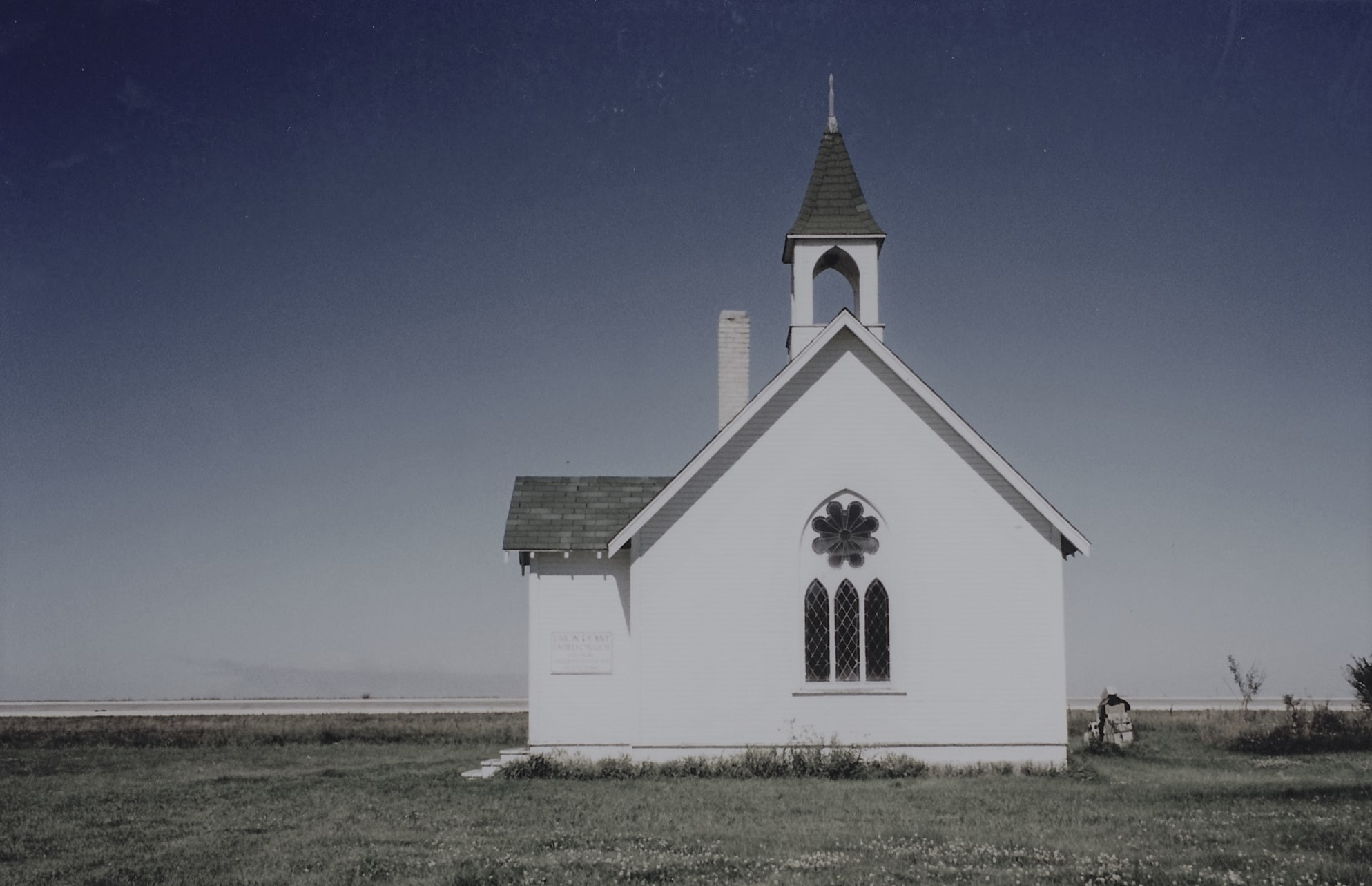May 16th, 2023MC Canada announces Emissions Reduction Grant
MC Canada launches Emissions Reduction Grant for church buildings
May 17, 2023
 Winnipeg – Mennonite Church Canada will provide grants to congregations wishing to upgrade their facilities with the goal of reducing greenhouse gas emissions (GHG). GHGs from burning fossil fuels are a major contributor to extreme weather events. For more details about the grant including how to apply, go to Mennonite Church Canada Climate Action.
Winnipeg – Mennonite Church Canada will provide grants to congregations wishing to upgrade their facilities with the goal of reducing greenhouse gas emissions (GHG). GHGs from burning fossil fuels are a major contributor to extreme weather events. For more details about the grant including how to apply, go to Mennonite Church Canada Climate Action.
The idea for the fund first surfaced in MC Canada’s Sustainability Leadership Group in 2022.
Sandy Plett, climate action coordinator is heading up the project. “Creation Care, thrift and sensible resource use is part of our history as Mennonites. There are new challenges facing us, for sure, but we do have historical strength to draw on as we face the work of adapting to a changing climate,” she said.
The city of Kitchener-Waterloo traces its blue box recycling program in part to local initiatives in the 1970s when Mennonite Central Committee created a drop off recycling program for steel cans, glass and newspapers. Mennonite Church Saskatchewan’s lodge at Camp Shekinah incorporated recycled materials, including lumber from a demolished grain elevator.
Pre-dating these examples are the popular MCC Thrift stores that each year divert tons of clothing and other goods from landfills. And Doris Janzen Longacre’s still popular book, More with Less was first published in 1976. It changed the way Mennonites viewed and consumed food, with a sharp eye on using less of the world's resources.
“When we reduce emissions we have an impact on how much heating will happen on the planet. And every bit matters. Emissions reduction is an important act of mitigation,” said Plett.
The benefit of reducing GHG emissions from church buildings is harder to visualize because GHGs are an invisible threat.
Analogies are often imperfect, but carbon emissions are like a super slow tornado or hurricane. You can’t see the wind, but you can see the effect these storms leave in their wake. The scientific community is in agreement that wildfires, droughts, and floods are occurring with increasing frequency and severity due to GHG emissions. Population growth over the generations means more people, land, and crops, are affected by extreme weather.
The multi-year Emissions Reduction Grant (ERG) will fund 50% of the cost to reduce carbon emissions from church buildings, up to $6,000 in some cases. Plett expects to fund four to five grant applications in 2023. Better insulation, window and door upgrades, energy efficient heating and cooling systems and appliances are just a few examples of qualifying improvements.
Nelson Lee is a member of Mennonite Church BC’s Creation Care Task Group. An engineer, Lee is president of Green Sky Sustainability Consulting Inc., an environmental company with 50-100 clients across Canada who need third party verification of their carbon footprint. He’s also worked with a variety of church and groups on carbon footprint assessments on how to reduce GHGs.
Lee hopes that churches who upgrade their buildings won’t be quiet about what they’re doing. “The gospel is bigger than just salvation for people,” said the member of Vancouver’s Chinatown Peace Church. “It’s the whole of creation. It’s all being redeemed and reconciled to God.” (See fuller profile below.)
The constant onslaught of doomsday climate change scenarios in the news can make people lose hope and results in inertia. In 2012, average global temperatures were projected to increase by 4°C or more without interventions. The scenario predicts significant flooding of low lying coastal areas, aquifer losses, and loss of life.
But current actions are trending in a good direction. The online Climate Action Tracker, an independent scientific body, now forecasts an increase in 2.9°C by 2100. That’s still a less than ideal projection, but it does indicate that actions being taken now are having a positive effect on climate change forecasts.
According to Doug Klassen, executive minister of MC Canada, the $100,000 seed money for the fund comes from a church building fund that was established by a generous donor, as well as a self-imposed carbon levy on MC Canada’s staff and volunteer travel. “But anyone can donate to the fund,” Klassen hastens to add.
He encourages congregations to exploit the grant fund. “We know that many congregations do want to make the changes, and that’s such a good thing. The sooner we can reduce carbon emissions, the greater the benefits will be.”
To kick start people’s thinking on the topic, Plett has organized a webinar led by Stephen Collette, Building Audit Manager at Faith & the Common Good. The free event will discuss a variety of possible building upgrades that aim for efficiency while reducing GHGs, and the payback on those investments, followed by a Q&A session. Homeowners are also invited to attend and learn about efficiency opportunities for their residences. The event is scheduled for June 14, 2023, at 7pm CDT. Two persons per congregation can register by contacting Sandy Plett.
Plett recommends additional resources online provided by Greening Sacred Spaces, and God’s Green Church which is tailored specifically for Mennonite congregations.
The deadline for the first round of applications is September 30, 2023. Qualifying grants will be announced by November 4, 2023. Lee hopes congregations will prayerfully consider applying for a grant. “It makes sense economically and it makes climate justice sense, too,” he said. “And once one church does it, another one can learn from their experience.”
 Profile: Nelson Lee
Profile: Nelson Lee
When environmental consultant Nelson Lee became a Christian 25 years ago, he was working in the environmental protection field. Thinking about his work and his church, he suddenly realized that “… caring for creation is what God wants us to do.”
Today he is the president of Green Sky Sustainability Consulting Inc. and employs ten staff and another ten interns. The company offers third party auditing of industrial companies’ carbon footprint to 50 to 100 clients each year across Canada, a business that is also growing internationally.
The advocate of responsible industry says governments are increasingly asking industry to voluntarily provide carbon footprint information, but he expects such data to become a regulatory requirement in the future.
Experience in the field has led Lee to volunteer with a variety of groups seeking to reduce their carbon footprint, so when an invitation arose to join Mennonite Church B.C.’s Creation Care Task Group two years ago, the member of Vancouver’s Chinatown Peace Church happily signed up.
He believes that making church facilities more energy efficient is a Christian witness to the surrounding community. Simply inviting neighbors to visit their church hasn’t always worked. Retrofitting insulation or installing a heat pump is an opportunity for conversation in the community. “Maybe the church opens its doors, and says, ‘Hey, you could do this too!’”
Lee offers the example of a church upgrading its heating and cooling systems for more efficiency. The congregation could offer their building as a cooling or warming centre during waves of extreme weather. “Invite people in to taste and see how the Lord is good,” he said.
Lee sees climate change as a climate justice issue. “Climate change is a threat multiplier,” he said. Affluent people have the means to move or enhance resilience to floods or wildfires, but “The poor are stuck, and they are the ones who suffer.
Who created climate change? It wasn’t the poor people it was the rich people. We’re the ones who have been burning fossil fuels for decades. The poor have contributed almost nothing [to climate change], yet they’re the ones who are getting flooded out and can’t grow crops.”
Lee says climate change can be mitigated. “Our technology and our affluence really can do something about it, and we can make a difference.”
Maybe we can connect the dots of loving God and our neighbor by reducing our greenhouse gas emissions.”